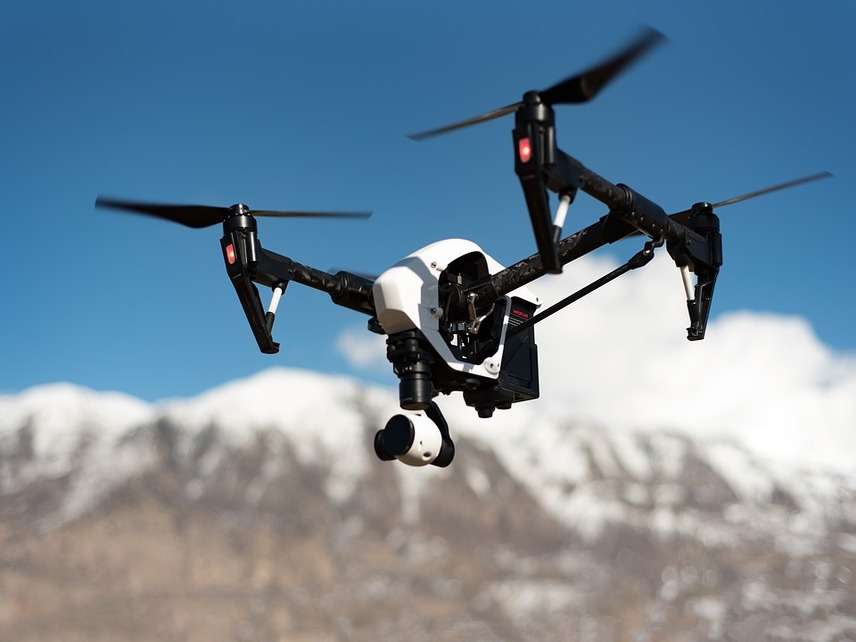Florida Cops Used Drones to Foil a Suicide Attempt
Cop tech can facilitate better policing, but it urgently needs more oversight.

A suicidal Florida woman armed herself with a revolver and took to the roads in December, intending to provoke police into killing her, reports the Washington Post. With the help of two camera drones, though, local police foiled her plan, raising the possibility of a new use for the devices not yet widely contemplated: de-escalation.
It's both unclear and hotly contested just how common such "suicide by cop" attempts are, but anecdotes like the one from Florida are common enough that it's reasonable to suspect that they account for a significant portion of the hundreds of people fatally shot by police every year. Just yesterday, a woman armed with a pistol was shot by police in Laguna Beach, California, after reportedly making suicidal statements.
But the Florida woman's story ended differently. A pair of camera drones monitored the woman during a four-hour standoff in which she repeatedly pointed the gun at officers and at least one civilian, demanding that police kill her. Using them, officers could see the woman consuming vodka and pills, and they could see when her finger was and wasn't placed on the revolver's trigger. Despite the woman's actions, therefore, it was never deemed necessary to fire on her.
In the end, the woman was taken into custody by a SWAT team, which used less-lethal "beanbag" rounds, pepper spray, and an armored vehicle to approach the car and subdue the woman.
Given the circumstances, that's a remarkable outcome. Most American officers are trained to shoot if a suspect tries to point a gun at them, and the law considers such shootings justified.
The Florida story suggests that new notions about policing and force, advanced by reform groups like the Police Executive Research Forum (PERF), may be beginning to have an effect. A growing number of officers are being trained in "de-escalation" techniques which instruct officers to slow down, back off, and try to wait out potentially violent individuals.
The use of camera drones to facilitate de-escalation adds an interesting wrinkle to what is otherwise a straightforwardly positive development for civil libertarians.
On one hand, the drones in Stafford County certainly seem to have helped overcome one of the downsides of the de-escalation tactics groups like PERF advocate: the large number of officers they require to contain and monitor an armed suspect. Their use therefore might assist the proliferation of such tactics, and thus help shrink the annual number of police-involved shootings.
On the other hand, cop-drones have this effect precisely because they're so good at gathering information on individuals' behavior. The deputies in Stafford County evidently felt comfortable attempting de-escalation because, using drones, they could watch the woman so closely they felt they could essentially read her mind. That's an extraordinary capability that could be misused in all sorts of less benign contexts.
Given the camera drones' ability to facilitate de-escalation, it's hard to argue that cops should be banned from using them entirely. But the public should not take it on faith that police will use drones only in benevolent ways.
Luckily, there's a fairly simple way out of the conundrum: preemptive restriction. If the residents of Stafford County want their police officers to use drones to help contain unstable armed people, but not, say, to enforce speed limits or search private lands for marijuana, they can push their elected lawmakers to write such guidelines into applicable laws.
It's long past time for these conversations to happen. As the incident in Florida shows, police are already deciding for themselves how they want to use this technology. They shouldn't be doing so without approval from the communities they're supposed to serve.
